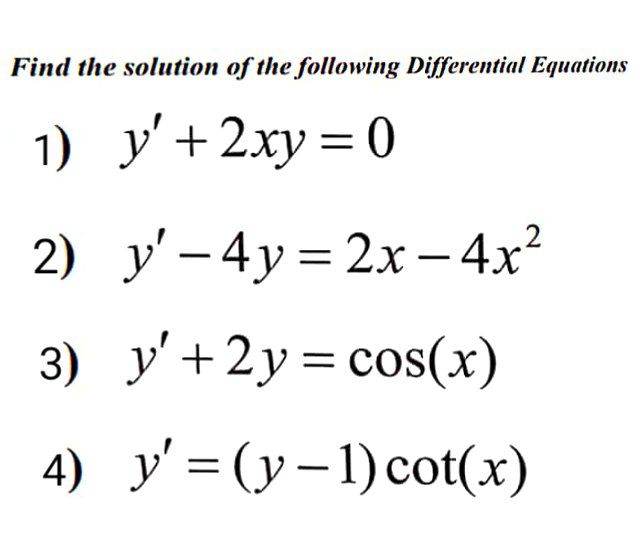
Linear ODE y + 2xy = 0; y(0) = 1. Black Square, 4th-order rules; Black... | Download Scientific Diagram
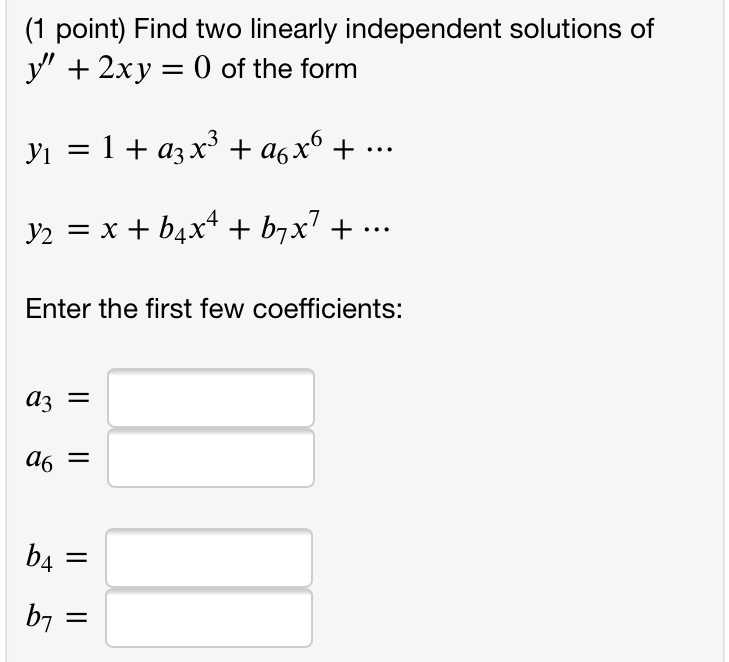
SOLVED: (1 point) Find two linearly independent solutions of y' + 2xy = 0 of the form Y1 = 1+a3x + dx6 + Y2 =x+b4x4 + box7 + Enter the first few coefficients: 03 @6 b4 = b7

Harder Series Solution Differential Equation y'' - 2xy' + 8y = 0 with Initial Conditions | Differential equations, Math videos, Solutions
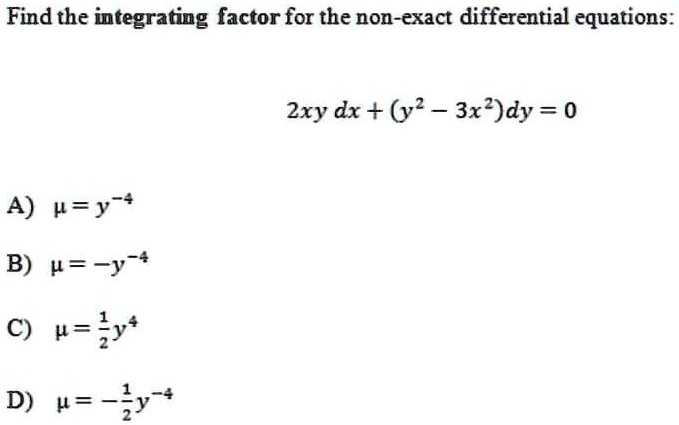
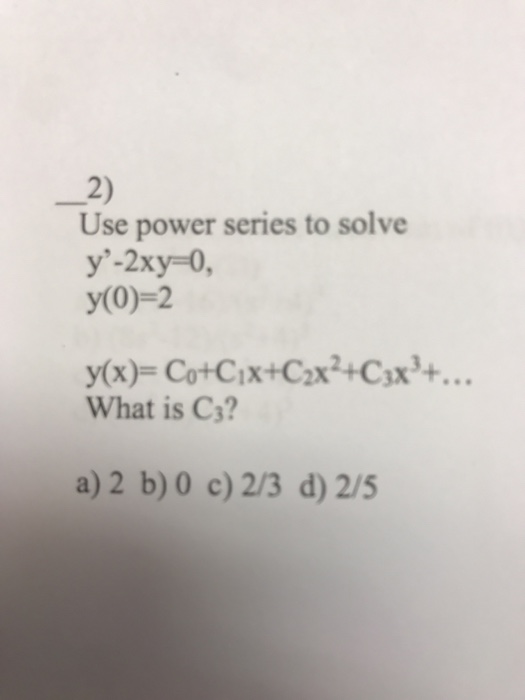

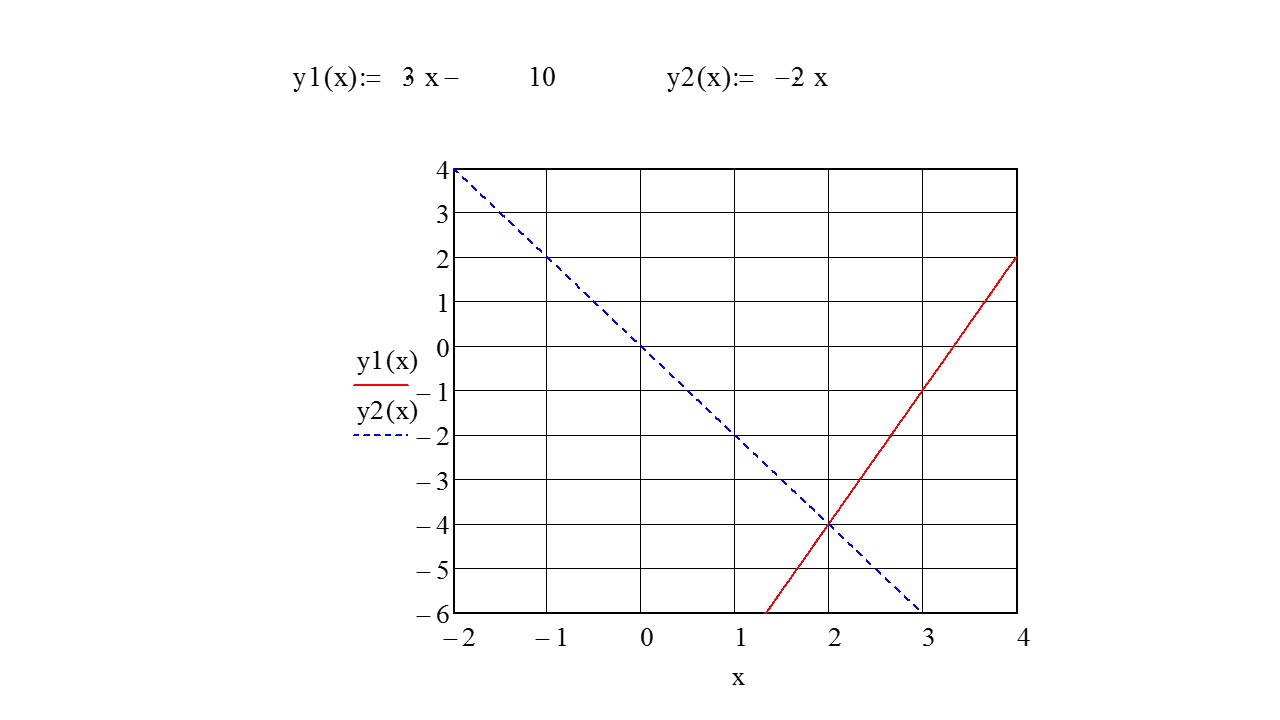

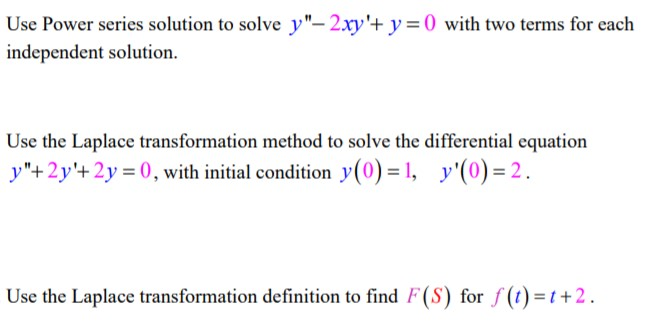

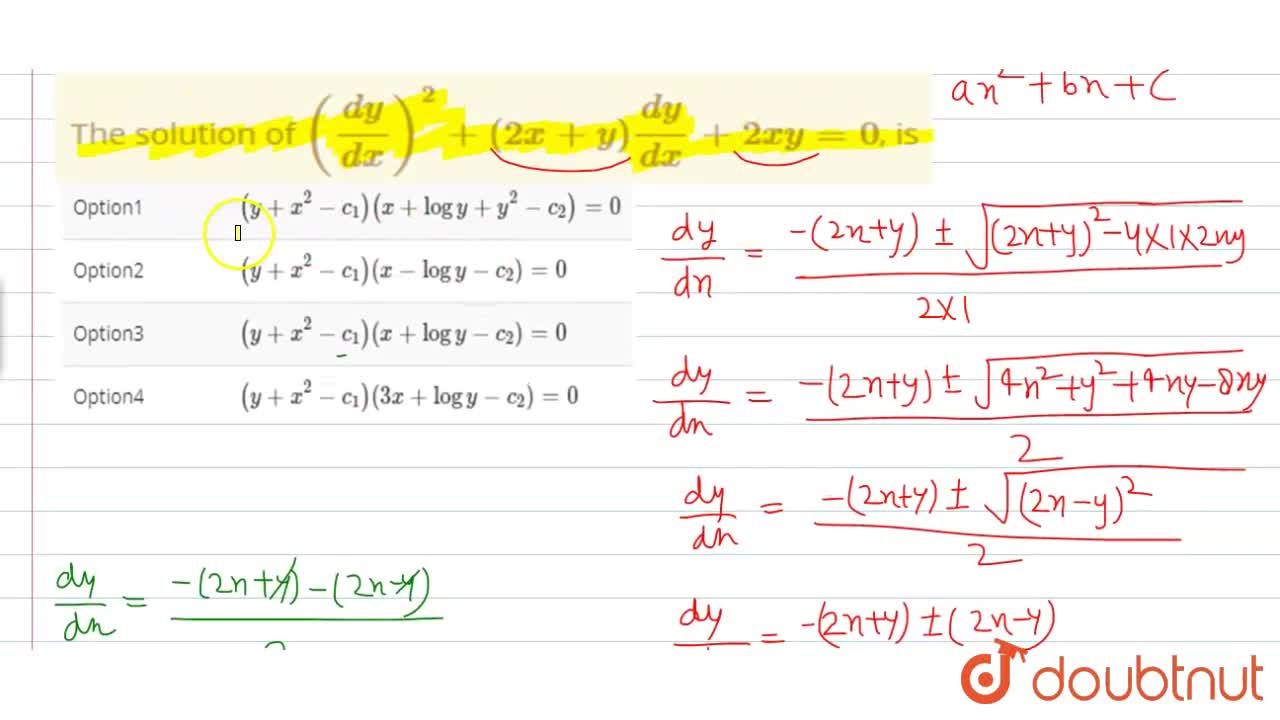

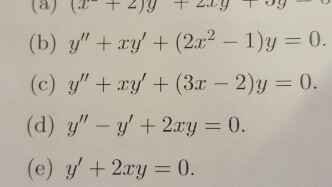


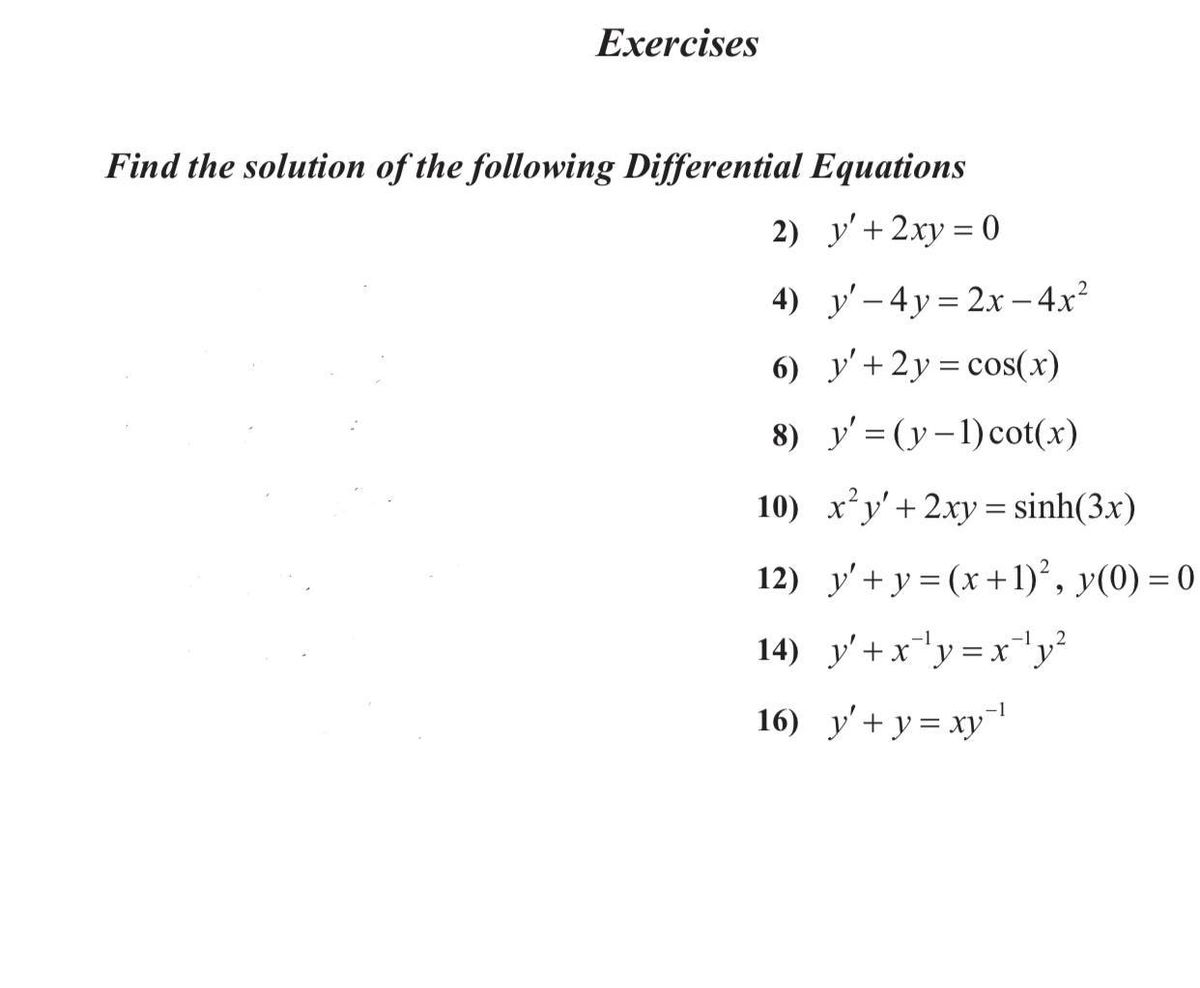



y''-2xy'-2y= 0?[/math] - Quora What is the solution to the differential equation: [math](1-x^2)y''-2xy'-2y= 0?[/math] - Quora](https://qph.cf2.quoracdn.net/main-qimg-efe0f6bd193114597bb787d0b5932520.webp)
